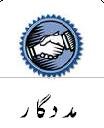A NEW TOOL FOR POLICE

Since it was introduced in New York, DNA sampling has emerged as an important tool in hard-to-solve cases like burglaries, in which, according to the New York Times, arrests are made in only about 15 percent of reported offenses. In 2004, a pilot program launched in Queens called Biotracks, which netted 23 suspects tied to 34 burglary cases in a nine-month period, according to the Times. It led to the arrest of one man, Robert Medina, who pled guilty to five burglaries after DNA on a scarf he left at a crime scene was matched to a sample taken from him after a previous felony arrest.
The same procedure can be used with sex offenses, which are also difficult to solve. In a recent case, DNA from a Queens man convicted on a drug-related charge was matched to a sample saved from a rape kit that included a taunting note left for the victim. As a result, he was found guilty of first-degree rape and second-degree burglary.
Speaking in 2006, Police Commissioner Kelly asserted that DNA testing had led to the arrests of 210 sex offenders. New York City. The technology spurred the elimination last year of the state’s five-year statue of limitation for rape cases.
Perhaps the strongest case for expansive DNA sampling comes from England, which, in the last decade, has embarked on the world’s most aggressive DNA gathering effort. The country’s DNA database maintains over 4 million samples, covering about 6 percent of the population, more than ten times the rate at which DNA samples are collected in the United States. The database has yielded close to 3,000 crime scene matches per month, according to NewScientist.com, including “hits for 15 murders, 45 rapes and sexual offenses and 2,500 car, theft and drug crimes.”
At the same time, DNA sampling can help prove the innocence of individuals wrongly convicted of a crime. The Innocence Project, which uses DNA to try to win the release of the wrongfully convicted, has helped exonerate 201 individuals in the United States, and 23 in New York State. Most recently, DNA testing was used to exonerate Byron Halsey, the New Jersey man who had served 19 years in jail for the murder of the seven and eight-year old children of Halsey’s girlfriend. DNA testing instead implicated a neighbor who had testified against Halsey during the trial. In a statement that shows the powerful impact of DNA, the victims’ mother said, “I knew Byron loved Tyrone and Tina. It didn’t make sense to me that he could have done this. I always had my doubts, but I didn’t know what to do about them. I am thankful that the DNA testing has identified who really did this to my children and that Byron is being released today.”
Gotham Gazette, New York, USA





No comments:
Post a Comment